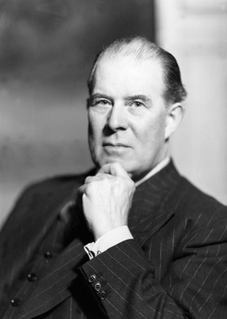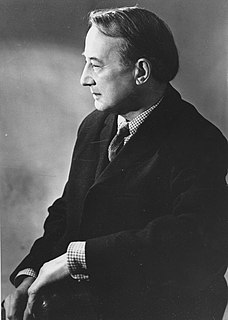A Quote by Aiden Wilson Tozer
Worship is to feel in your heart and express in some appropriate manner a humbling but delightful sense of admiring awe and astonished wonder and overpowering love in the presence of that most Ancient Mystery, that Majesty which philosophers call the first cause, but which we call our Father which art in heaven.
Related Quotes
Worship is to feel in the heart . . . it is an attitude and a state of mind. It is a sustained act, subject to varying degrees of intensity and perfection . . . Real worship is, among other things, a feeling about the Lord our God . . . It is in our hearts. And we must be willing to express it in an appropriate manner. If we love the Lord and are led by His Holy Spirit, our worship will always bring a delighted sense of admiring awe and a sincere humility on our part.
There are some places which, seen for the first time, yet seem to strike a chord of recollection. "I have been here before," we think to ourselves, "and this is one of my true homes." It is no mystery for those philosophers who hold that all which we shall see, with all which we have seen and are seeing, exists already in an eternal now; that all those places are home to us which in the pattern of our life are twisting, in past, present and future, tendrils of remembrance round our heart-strings.
There is a spiritual capacity in carbon as there is a carbon component functioning in our highest spiritual experience. If some scientists consider that all this is merely a material process, then what they call matter, I call mind, soul, spirit, or consciousness. Possibly it is a question of terminology, since scientists too on occasion use terms that express awe and mystery. Most often, perhaps, they use the expression that some of the natural forms they encounter seem to be "telling them something."
The artist appeals to that part of our being which is not dependent on wisdom; to that in us which is a gift and not an acquisition-and therefore, more permanently enduring. He speaks to our capacity for delight and wonder, to the sense of mystery surrounding our lives; to our sense of pity, and beauty and pain.
I know that some subjective experiences of sex are very firm and fundamental, even unchangeable. They can be so firm and unchanging that we call them "innate". But given that we report on such a sense of self within a social world, a world in which we are trying to use language to express what we feel, it is unclear what language does that most effectively. I understand that "innate" is a word that conveys the sense of something hired-wired and constitutive. I suppose I would be inclined to wonder whether other vocabularies might do the job equally well.
Politics I take to be the activity of attending to the general arrangements of a set of people whom chance or choice have brought together. In this sense, families, clubs, and learned societies have their 'politics'. But the communities in which this manner of activities is pre-eminent are the hereditary co-operative groups, many of them of ancient lineage, all of them aware of a past, a present and a future, which we call states.
The human person, whose definition serves as the touchstone according to which good must be distinguished from evil, is considered as sacred, in what one might call the ritual sense of the word. It has something of that transcendental majesty which the churches of all times have given to their Gods.
Retreat is a response to the call of the heart-that call which beckons us toward reality, to the truth of our being, to that which is truly sane, really real and liberating ... When a group of people come together as a response to that kind of inward call, it creates a very powerful environment, where truth is held in the highest esteem and the reality of our being responds to that deepest intention.
So if the worth of the arts were measured by the matter with which they deal, this art-which some call astronomy, others astrology, and many of the ancients the consummation of mathematics-would be by far the most outstanding. This art which is as it were the head of all the liberal arts and the one most worthy of a free man leans upon nearly all the other branches of mathe matics. Arithmetic, geometry, optics, geodesy, mechanics, and whatever others, all offer themselves in its service.




































